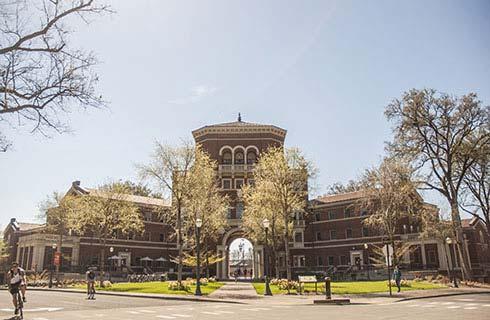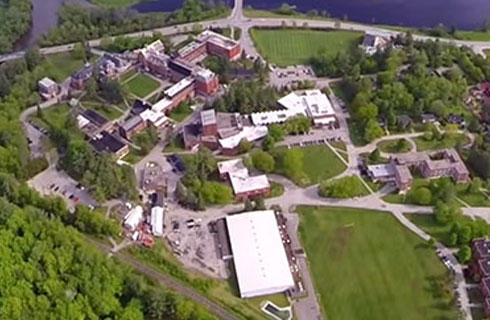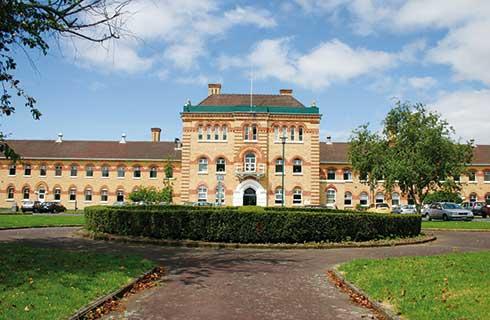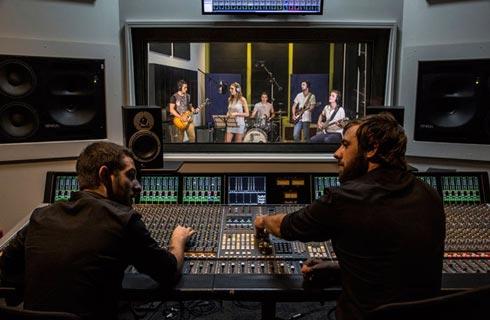Master of Science in Physics

学历文凭
Masters Degree

专业院系
College of Science

开学时间

课程时长

课程学费

国际学生入学条件
An Official copy of the GRE (Graduate Records Exam) scores (Verbal and Quantitative)
GPA minimum requirements:
2.8 GPA in the undergraduate degree
3.0 GPA in the last 60 hours of the undergraduate degree
3.5 GPA in a graduate degree (if applicable)
GRE (optional) minimum requirements if submitted:
152 GRE Quantitative Reasoning score
147 GRE Verbal Reasoning score
3.5 GRE Analytical Writing score
Letter of Intent, including the specific program and degree sought (MS or PhD), faculty member(s) contacted as prospective major professor/advisor, professional goals and objectives, the reason for choosing UNT, the Department of Physics and the specific area of interest
Two (2) Form Letters of Recommendation from former professors if a recent graduate. One letter may be from an employer if employed for more than one year since graduation.
IELTS - 6.0
TOEFL iBT - 79
DET - 100
IDP—雅思考试联合主办方

雅思考试总分
6.0
- 雅思总分:6
- 托福网考总分:79
- 托福笔试总分:550
- 其他语言考试:PTE - 53
CRICOS代码:
申请截止日期: 请与IDP联系 以获取详细信息。
课程简介
相关申请
 预科
预科 奖学金
奖学金 实习机会
实习机会 在校学习
在校学习 跨境学习
跨境学习 校园授课-线上开始
校园授课-线上开始 在线/远程学习
在线/远程学习
开学时间&学费
学费信息仅供参考,请与IDP联系以获取详细信息
| 开学时间 | 时长 | 学费 | 地点 |
|---|
关于北德克萨斯大学

成立于1890年的北德克萨斯大学位于美丽的丹顿镇。丹顿被誉为美国十大最佳大学城之一,是一个安全和友好的地方,有各种各样的事情可以让学生参与其中,包括自行车道和美丽的公园。丹顿繁忙的市中心广场上有很多吃喝玩乐和认识新朋友的好地方。北德克萨斯大学不仅有丰富的生活,还被福布斯称为全美最具价值的大学之一。北德克萨斯大学被福布斯称为过去十年全美顶尖大学之一。北德克萨斯大学以''#我们欢迎你''之热情理念而闻名,拥有来自全球145个国家的3000多名国际学生。大学拥有的41000名学生,创造了一个容纳不同文化和背景的多元环境。学生可以从239个学位课程中选择,其中包括80个在线课程、109个学士课程、94个硕士资格和36个博士学位。作为卡耐基研究型大学之一的北德克萨斯大学是美国最大的公立研究型大学之一,在北德克萨斯进行的大量优秀研究项目获得了国际认可。北德克萨斯大学有89个学术学习项目名列国家前100。大学鼓励学生在课堂内外探索自我的创造性。教职员工身处自我领域前沿,确保学生受益于创新研究和非凡教学标准。北德克萨斯大学是德克萨斯最大、最多元化的公立大学之一,位于繁荣的达拉斯沃斯堡大都市,气候温暖,是一个占地875英亩、安全居住型校园。北德克萨斯拥有许多世界领先的高科技公司和研究中心。
本校相关课程

Doctor of Philosophy in Special Education
学历文凭
Ph.D.
开学日期
课程费用总额


Doctor of Philosophy in Sociology
学历文凭
Ph.D.
开学日期
课程费用总额


Doctor of Philosophy in Public Administration and Management
学历文凭
Ph.D.
开学日期
课程费用总额


Doctor of Philosophy in Political Science
学历文凭
Ph.D.
开学日期
课程费用总额


Doctor of Philosophy in Physics
学历文凭
Ph.D.
开学日期
课程费用总额


Doctor of Philosophy in Philosophy
学历文凭
Ph.D.
开学日期
课程费用总额

其他相关课程

物理学哲学博士-量子信息
 滑铁卢大学
滑铁卢大学学历文凭
Ph.D.
开学日期
课程费用总额


物理学理学硕士-量子信息
 滑铁卢大学
滑铁卢大学学历文凭
Masters Degree
开学日期
课程费用总额


物理学哲学博士
 滑铁卢大学
滑铁卢大学学历文凭
Ph.D.
开学日期
课程费用总额


物理学理学硕士
 滑铁卢大学
滑铁卢大学学历文凭
Masters Degree
开学日期
课程费用总额


物理学理学士(荣誉学位)
 滑铁卢大学
滑铁卢大学学历文凭
Bachelor Degree with Honours
开学日期
课程费用总额


物理学理学硕士
 劳伦森大学
劳伦森大学学历文凭
Masters Degree
开学日期
课程费用总额










 美国
美国